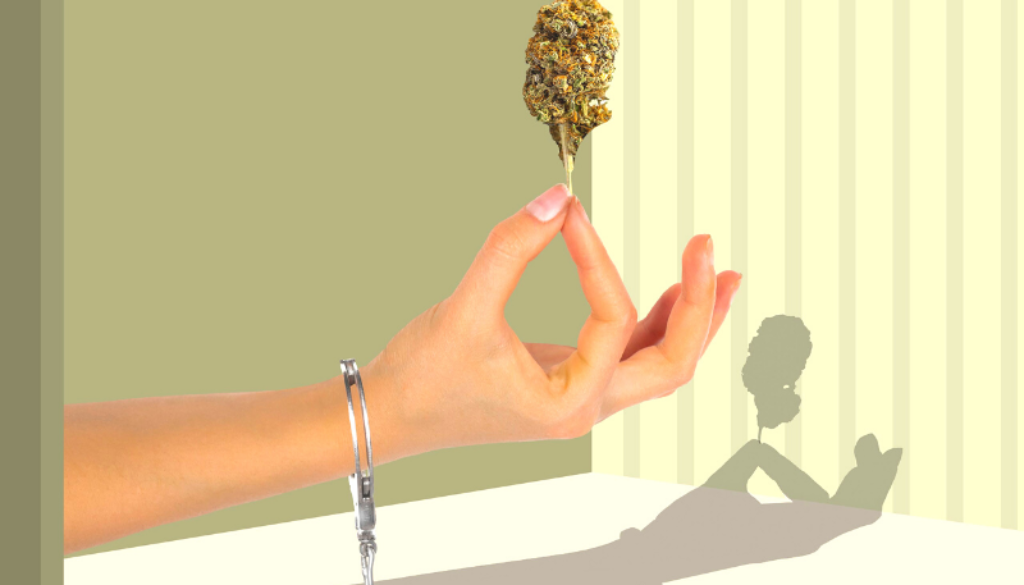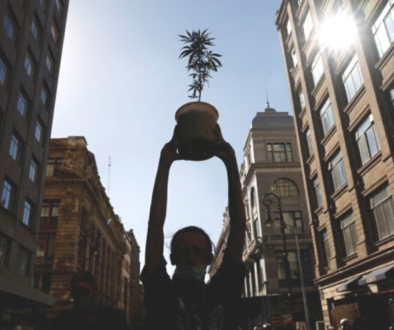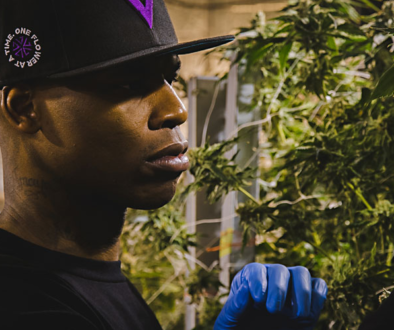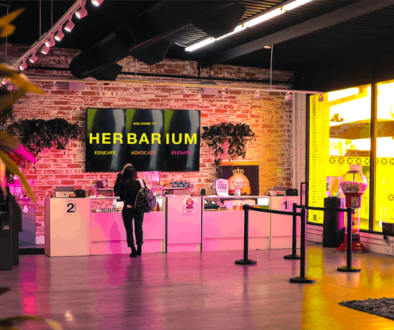Last Prisoner Project Aims to Free People Jailed for Nonviolent Cannabis Offenses
Steve DeAngelo and the Last Prisoner Project have an ambitious goal: to free the estimated 40,000 people jailed in the U.S. for nonviolent marijuana offenses.
Every single one of them.
“This is something the cannabis industry can absolutely get done,” said DeAngelo, the co-founder of the project and chair emeritus of Harborside, which has a store in San Jose. “If we do it, we’ll be in a position where we can really walk tall and be unique among all industries that are really paying attention to social justice. A lot of companies are putting out art, ads, memes and statements on social media, and all these things are not bad developments. But they’re not enough if we really want to make real systemic change in this country. Cannabis justice is racial justice and vice versa.”
The marijuana industry is booming across the country, but amid this growth, there are serious concerns that those most affected by decades of marijuana criminalization are being left out. People are still sitting in jail cells—some for life—convicted of an activity that is no longer a crime. Meanwhile, thousands of others are getting wealthy today doing exactly the same thing that landed their predecessors behind bars.
The Last Prisoner Project, known as LPP, is a non-profit coalition of cannabis industry leaders, executives and artists dedicated to bringing justice to the cannabis industry.
Harborside has been a partner with the project since it was launched in March 2019, and recently made a $10,000 charitable contribution to the Oakland-based Peralta College foundation for students enrolled in the Cannabis Certification program at Merritt College—aiming to provide prospective professionals in the legal industry with a comprehensive portfolio of skills and business expertise.
The LPP addresses the core social justice platform of releasing incarcerated cannabis prisoners by taking a three-pronged approach of clemency, reentry and legislative advocacy. Through the clemency program, LPP provides attorneys with the infrastructure and training to provide legal assistance to every eligible individual incarcerated on cannabis-related offenses.
Whereas many organizations talk a good game, the LPP has made an actual difference.
LPP had paired Craig Cesal with a pro bono attorney to file his compassionate release motion, but he was subsequently granted home confinement in response to the request for release he submitted himself to the warden. LPP will continue to fight for a full commutation of Cesal’s sentence via compassionate release and/or executive clemency.
“We also became the largest single contributor to his GoFundMe campaign [as of last week] so he can have some expense money when he completes the transition,” DeAngelo said.
That’s where the reentry program comes in. When individuals are released from prison, data shows most fail without the proper resources in place.
“They hit the streets with nothing,” DeAngelo said. “They usually have ankle monitors they’re wearing as they apply for and interview for jobs, which is difficult.”
The LPP’s Prison to Prosperity program is a pipeline mentorship program that pairs up individuals with a high level cannabis executive who can help shepherd the released prisoner into a potential job in the cannabis industry. LPP is partnering with Vangst, the cannabis industry’s top recruiting platform, to lead those efforts.
LPP also works to advocate for social justice measures for cannabis offenders and has locked down a list of major cannabis donors while partnering with notable figures and organizations within and outside the industry.
In the wake of the nationwide anti-racist protests, the cannabis industry has been confronted with the reality that it, too, has diversity, inclusion and racial issues.
According to a 2017 Marijuana Business Daily study, nearly 400 pot businesses found that more than 80 percent were owned by white men. The numbers also show that Blacks and Hispanics are disproportionately arrested for cannabis-related offenses.
“What we saw in California in the first 10 years after medical cannabis [was legalized for patients with serious diseases] was that people of color were a lot more likely to be targeted, arrested and prosecuted than white people were,” DeAngelgo said. “There’s an excellent reason Black and Brown people were slow to getting in the industry. Once they attempted to enter the industry, there was a whole range of structural barriers set up, one of the largest being a lack of access to capital. What can be done about it? I think the real answers need to come from the industry itself.”
via San Jose Inside
Steve DeAngelo and the Last Prisoner Project have an ambitious goal: to free the estimated 40,000 people jailed in the U.S. for nonviolent marijuana offenses.
Every single one of them.
“This is something the cannabis industry can absolutely get done,” said DeAngelo, the co-founder of the project and chair emeritus of Harborside, which has a store in San Jose. “If we do it, we’ll be in a position where we can really walk tall and be unique among all industries that are really paying attention to social justice. A lot of companies are putting out art, ads, memes and statements on social media, and all these things are not bad developments. But they’re not enough if we really want to make real systemic change in this country. Cannabis justice is racial justice and vice versa.”
The marijuana industry is booming across the country, but amid this growth, there are serious concerns that those most affected by decades of marijuana criminalization are being left out. People are still sitting in jail cells—some for life—convicted of an activity that is no longer a crime. Meanwhile, thousands of others are getting wealthy today doing exactly the same thing that landed their predecessors behind bars.
The Last Prisoner Project, known as LPP, is a non-profit coalition of cannabis industry leaders, executives and artists dedicated to bringing justice to the cannabis industry.
Harborside has been a partner with the project since it was launched in March 2019, and recently made a $10,000 charitable contribution to the Oakland-based Peralta College foundation for students enrolled in the Cannabis Certification program at Merritt College—aiming to provide prospective professionals in the legal industry with a comprehensive portfolio of skills and business expertise.
The LPP addresses the core social justice platform of releasing incarcerated cannabis prisoners by taking a three-pronged approach of clemency, reentry and legislative advocacy. Through the clemency program, LPP provides attorneys with the infrastructure and training to provide legal assistance to every eligible individual incarcerated on cannabis-related offenses.
Whereas many organizations talk a good game, the LPP has made an actual difference.
LPP had paired Craig Cesal with a pro bono attorney to file his compassionate release motion, but he was subsequently granted home confinement in response to the request for release he submitted himself to the warden. LPP will continue to fight for a full commutation of Cesal’s sentence via compassionate release and/or executive clemency.
“We also became the largest single contributor to his GoFundMe campaign [as of last week] so he can have some expense money when he completes the transition,” DeAngelo said.
That’s where the reentry program comes in. When individuals are released from prison, data shows most fail without the proper resources in place.
“They hit the streets with nothing,” DeAngelo said. “They usually have ankle monitors they’re wearing as they apply for and interview for jobs, which is difficult.”
The LPP’s Prison to Prosperity program is a pipeline mentorship program that pairs up individuals with a high level cannabis executive who can help shepherd the released prisoner into a potential job in the cannabis industry. LPP is partnering with Vangst, the cannabis industry’s top recruiting platform, to lead those efforts.
LPP also works to advocate for social justice measures for cannabis offenders and has locked down a list of major cannabis donors while partnering with notable figures and organizations within and outside the industry.
In the wake of the nationwide anti-racist protests, the cannabis industry has been confronted with the reality that it, too, has diversity, inclusion and racial issues.
According to a 2017 Marijuana Business Daily study, nearly 400 pot businesses found that more than 80 percent were owned by white men. The numbers also show that Blacks and Hispanics are disproportionately arrested for cannabis-related offenses.
“What we saw in California in the first 10 years after medical cannabis [was legalized for patients with serious diseases] was that people of color were a lot more likely to be targeted, arrested and prosecuted than white people were,” DeAngelgo said. “There’s an excellent reason Black and Brown people were slow to getting in the industry. Once they attempted to enter the industry, there was a whole range of structural barriers set up, one of the largest being a lack of access to capital. What can be done about it? I think the real answers need to come from the industry itself.”



